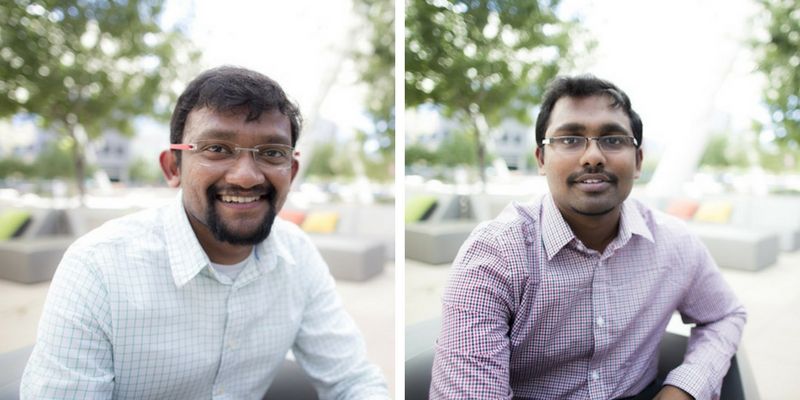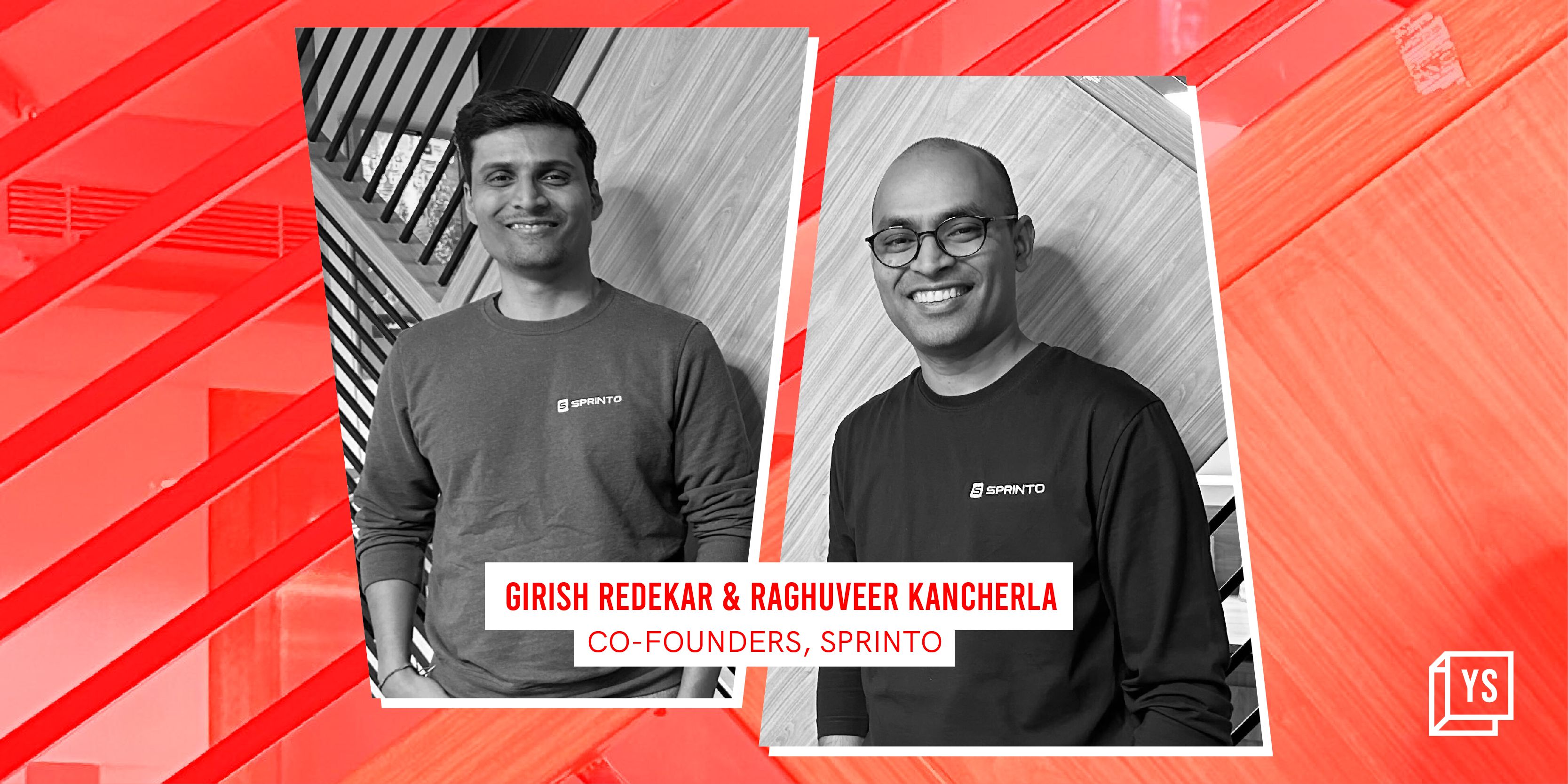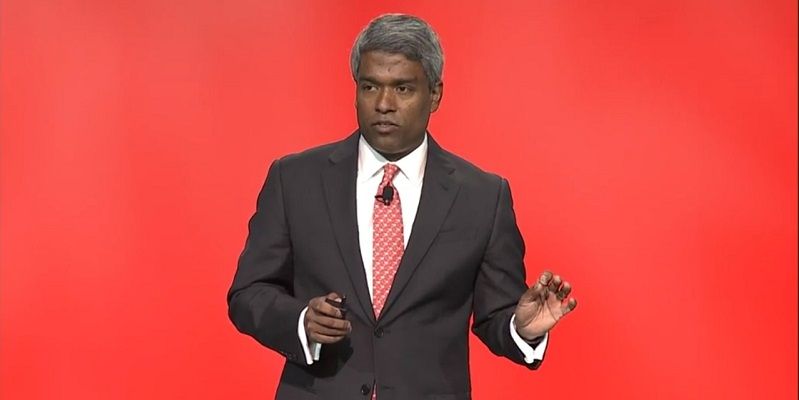2 Indian engineers have invented a device to cure infant jaundice at home
Vivek Kopparthi and Sivakumar Palaniswamy have invented Skylife, a portable phototherapy device that allows parents to treat jaundice at home.

Six in ten infants worldwide are diagnosed with jaundice. According to the World Health Organisation, 5.4 million infants in Southeast Asia and Africa go untreated for jaundice every year, which means there are 1,293 infants dying or suffering brain damage every day.
This appalling situation, however, could change. Two Indian-origin engineers in the USA — Vivek Kopparthi and Sivakumar Palaniswamy — have invented Skylife, a portable phototherapy system based on blue light-emitting diodes (LED) which can be used at home. The device works on solar and battery power.
How it started
A few years ago, Siva, visiting Indian hospitals in his capacity as an R&D engineer at a medical device firm developing neonatal incubators, saw the horrific conditions infants infected with jaundice were subjected to.
“On this trip, I saw multiple infant deaths due to jaundice. The main causes of death were lack of funds and lack of devices in hospitals,”
he says.
Saddened, Siva spoke to his childhood friend upon his return to the US. At the time, Vivek and Siva, both studying biomedical engineering at Arizona State University (ASU), were also sharing an apartment. The two discussed the problem and how they could help in providing a solution.
With both of them passionate about not letting treatable conditions take innocent lives, they started the initiative from their on-campus apartment. Vivek says,
“The technology is there, the world just needs the creativity and drive to find a way to apply it in new, more flexible ways.”
Their first break came when they received investment through ASU’s Edson Student Entrepreneur Initiative.
Building NeoLight
Recalling that time, Vivek says, “We simply had an idea and the hustle to bring it to life. We pitched it and were one of 20 student-led startups that received office space at ASU, a network of mentors, and up to $25,000 to grow the idea into a product, and the product into a company. We had a venture manager who monitored our progress and helped us manage our finances early on.”
In 2014, Siva and Vivek founded Neolight with the aim of providing a solution to infant jaundice. Vivek asserts, “We did not know if it would work but we knew that we had an honest opportunity at solving a problem. Being very entrepreneurial and impact-minded, we just jumped on board, no questions asked.”

Started by four friends, a team of student interns, and a small $7,000 grant, today Neolight is a team of 12 full-time employees. Vivek highlights that they have attracted industry leaders in MedTech, have strategic partnerships with major US hospital systems, and have raised over $3.5 million. He adds, “Just last month our SkyLife device received US Food and Drug Administration clearance.”
Saving every child
Skylife is roughly the size of a laptop and can be easily lifted with one hand, allowing parents to treat jaundice at home rather than at a hospital.
Vivek highlights,
“We focused on the size of the device so that we could free up space in the NICU for hospitals and create a solution that was easier, faster treatments with fewer side effects.”
Though the product has FDA clearance, it is not yet in the market. Vivek points out, “As a company, the primary problem we are trying to solve is that no infant, regardless of where he/she is born, should die from a treatable health condition. We believe the best way to get that end result is to develop empathy-driven devices that can be used anywhere.”
With a firm belief that life-saving equipment should not just be in the best hospitals in the wealthiest countries, Vivek says, “The high birth rate in India compounded by economic factors means that hospitals can be overcrowded. In short, effective treatment is not accessible to everyone. We don’t have proper data tracking as well. From what we know, two-thirds of jaundice mortality in India occurs in Assam — a resource-constrained state. Our technology is solar/battery-powered and is the ideal solution to help Assam.”
“I recommend that countries like India look to solutions like we are developing, as they provide low-cost, flexible treatment models, which I ultimately believe will reach more infants,” he adds.
SkyLife is expected to hit the American and European markets in early 2018. Siva clarifies that they are not limiting their work to jaundice and that they are working on devices to treat other infant health conditions as well.

They are working on partnerships with India-based medical device manufacturers to make it affordable for developing markets. In addition, they are working on setting up an R&D facility in India to resolve jaundice and other related neonatal problems all over the world. “No doubt, India is the market with the highest infant mortality rate and we will start from there!” asserts Siva.
Vivek, who was named in the Forbes 30 Under 30 list, is not resting on his laurels. Instead, “The award is more a recognition of what is possible through NeoLight so until we realise that possibility, I have work to do,” he concludes.









![[Funding alert] Electric vehicle startup Rivian raises additional $2.5B from investment firm T Rowe Price](https://images.yourstory.com/cs/2/b87effd06a6611e9ad333f8a4777438f/funding2-1587642295383.png)

